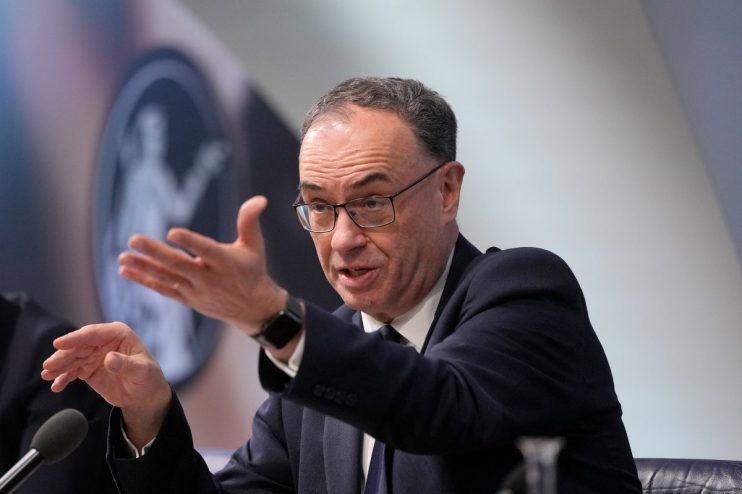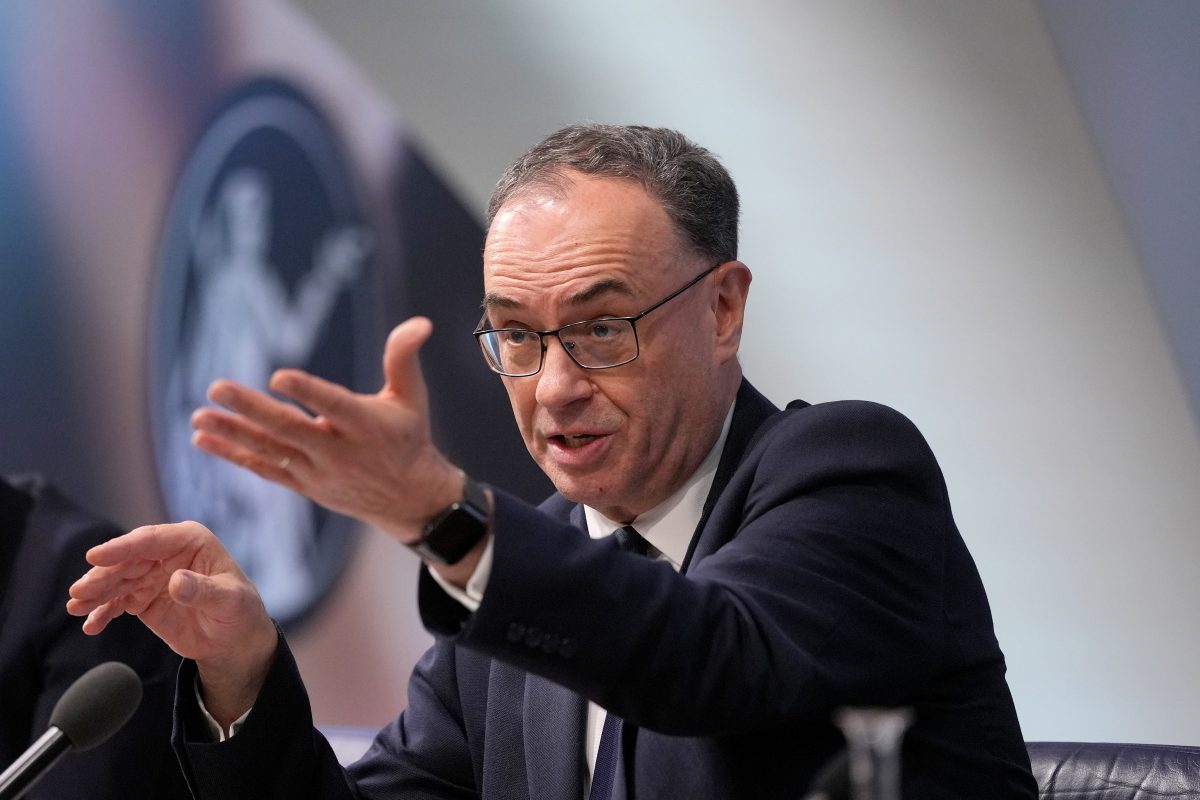Friday 05 September 2025 4:52 am
| Updated:
Thursday 04 September 2025 5:01 pm
Share
Facebook Share on Facebook
X Share on Twitter
LinkedIn Share on LinkedIn
WhatsApp Share on WhatsApp
Email Share on Email
 The Bank of England’s Andrew Bailey will be closely monitoring movements in long-dated bonds
The Bank of England’s Andrew Bailey will be closely monitoring movements in long-dated bonds
The Bank of England should slow its quantitative tightening programme and stop active sales of long-dated bonds entirely in the wake of this week’s bond rout that saw the cost of long-term borrowing soar to its highest level this century, a group of top economists has said.
Markets were rocked by a global sell-off in long-end debt on Monday and Tuesday, which saw bond yields climb sharply on fears that governments will struggle to rein in spending. Investors were further troubled by Donald Trump’s protracted assault on the Federal Reserve and political instability in France.
Long-dated gilts – the name given to UK government bonds – were swept up in the tumult. The yield on 30-year bonds jumped to its highest level since 1998 and 10-year gilt yields climbed to nine-month highs, piling fresh on Prime Minister Keir Starmer and his Chancellor’s spending plans.
Will the Bank of England shift gear later this month?
But the sell-off, which was mostly restricted to long-term borrowing, will also add further scrutiny on the Bank of England’s unusual approach to quantitative tightening that has seen it actively sell government debt to investors.
“The recent spike in long-dated gilt yields is a clear signal that markets are becoming increasingly concerned about the UK’s fiscal outlook,” Richard Carter, head of fixed interest research at Quilter Cheviot, told City AM. “This adds pressure on the Bank of England to reconsider the pace and structure of its quantitative tightening programme at the upcoming meeting.”
In the aftermath of the financial crisis, major central banks across the world bought up government debt in a bid to kick-start their shell-shocked economies via a process known as quantitative easing (QE).
Since 2022, most have sought to unwind that cycle by letting their bond holdings mature without replenishing them. But the Bank of England has been an international outlier, actively selling its portfolio of gilts back into the bond market in a programme dubbed ‘active quantitative tightening’.
Officials will reassess the pace of QT for the following year later this month but an influential group of economists and analysts have argued that after this week’s convulsions, the Bank risked sparking “further disruption in the gilt market” if it did not dramatically slow the pace of its bond sales.
Read more
The worrying bond market trend no one is talking about
“The QT programme was designed to function quietly in the background,” said Matthew Aimis, rates management investment director at Aberdeen. “Gilt supply is high and will remain high for the foreseeable future, so we don’t see what the advantages are for the BoE to continue sales at this point.”
“There is a strong case for pausing QT completely pending a full review of the policy,” added Julian Jessop, an independent economist and member of City AM’s Shadow Monetary Policy Committee. “I would reduce the pace of QT more aggressively than the markets expect – say to £50 billion in the coming year – while also emphasising that any active sales will be focused on shorter-dated bonds.”
Officials should ‘pause’ long-dated gilt sales
Even before this week’s sell-off, interest rates on long-term sovereign debt have has been rising across the world. In the US, 30-year Treasury yields have risen by as much as 0.864 per cent so far this year, with similar movements taking place on bonds across much of Europe.
Quilter Cheviot’s Carter added that with demand for long-term bonds drying up, the Bank should think carefully about “the composition of its gilt sales”.
“Investors are particularly sensitive to the sale of longer-dated bonds, which have borne the brunt of recent volatility,” he said. “A pause or slowdown in selling these maturities could help restore confidence and reduce the risk of further disruption in the gilt market.”
Jessop added that markets were already expecting policymakers to slow the pace of QT from £100bn to £70bn over the next year, meaning any reduction would have to larger if the Bank wanted to have “a significant impact on confidence”.
But speaking at a Treasury Select Committee appearance on Wednesday, Bank of England governor Andrew Bailey said the future pace of tightening had not been decided.
“Just to reassure you, the decision we’re going to take in the next few weeks is an open decision,” he told MPs. “Very clear, nothing closed about that decision.”
Read more
Banks’ bond market headache spells trouble for FTSE 100
Similarly tagged content:
Sections
Categories
People & Organisations

